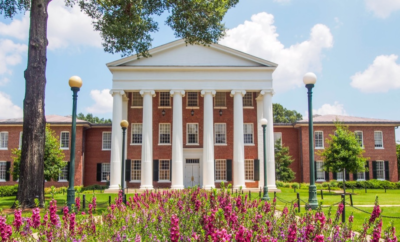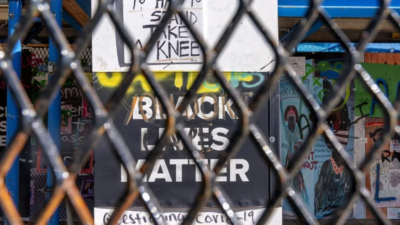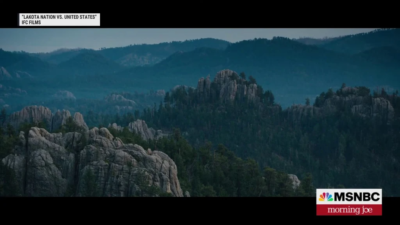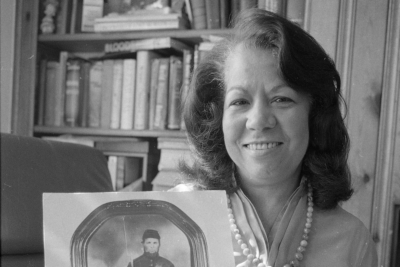Featured
 Diversity, equity and inclusion: The new American battlefield. By Tirien Steinbach / The Hill
Diversity, equity and inclusion: The new American battlefield. By Tirien Steinbach / The Hill
A Supreme Court decision to dismantle affirmative action would arrive in the midst of an escalating attack on diversity, equity and inclusion (DEI) from the far right: Republican lawmakers in 19 states have taken up legislation to limit or block university DEI programs; Florida’s Gov. Ron DeSantis has waged a campaign to dismantle and defund DEI initiatives; and the Texas legislature is approving a new $300 billion state budget prohibiting university spending on DEI.
Dismantling these programs and policies will not end the political and cultural wars, nor heal the wounds those battles have left upon the body politic. The vehement and vitriolic fight to destroy DEI is itself fueled by fear and flamed by hostility to change. Now more than ever, those who believe in diversity, equity and inclusion, and who believe that these values are actually fundamental to our country’s founding and future, must vigorously and vocally defend DEI programs. Read more
Related: The Evolution of DEI. By J. Brian Charles / The Chronicle of Higher Ed
Related: Looking Back on Three Years of Performative Diversity Efforts. By S. Mitra Kalita / Time
Political / Social
 Supreme Court affirmative action ruling could widen college racial gap. By Meredith Kolodner / USA Today
Supreme Court affirmative action ruling could widen college racial gap. By Meredith Kolodner / USA Today
At most state flagship universities, Black and Latino students are still very much underrepresented. In 14 states, the gap between the number of public high school graduates who are Black and the number of Black students who enroll in the state flagship was 10 percentage points or more in 2021.
In Mississippi, 48% of high school graduates were Black in 2021 but only 8% of first-year students at Ole Miss, the state’s flagship, were Black. The gap at the University of Georgia has grown over the past two years to 31 percentage points. In 2021, just 2% of incoming first-year students were Black men. Read more
Related: After Affirmative Action Ends. Jeannie Suk Gersen / The New Yorker
Related: How It Feels to Have Your Life Changed By Affirmative Action. By Amy Harmon / NYT
 Supreme Court Rejects Theory That Would Have Transformed American Elections. By Adam Liptak / NYT
Supreme Court Rejects Theory That Would Have Transformed American Elections. By Adam Liptak / NYT
The 6-to-3 majority dismissed the “independent state legislature” theory, which would have given state lawmakers nearly unchecked power over federal elections.
The vote was 6 to 3, with Chief Justice John G. Roberts Jr. writing the majority opinion. The Constitution, he said, “does not exempt state legislatures from the ordinary constraints imposed by state law.” Justices Clarence Thomas, Samuel A. Alito Jr. and Neil M. Gorsuch dissented. The case concerned the “independent state legislature” theory. It is based on a reading of the Constitution’s Elections Clause, which says, “The times, places and manner of holding elections for senators and representatives shall be prescribed in each state by the legislature thereof.” Read more
 A year after Supreme Court’s Dobbs decision, Black women still struggle for access to reproductive health care. By
A year after Supreme Court’s Dobbs decision, Black women still struggle for access to reproductive health care. By
As a scholar who studies reproductive policy, politics and social justice movements, I have always been aware that, even when Roe was in place, abortion access is an elusive right for women of color, women in rural areas and women living in poverty.
Black women comprise a disproportionate percentage – 39% – of abortion patients in the United States, and many live in communities with limited access to health services, including family planning clinics and pharmacies. They also disproportionately experience higher rates of other reproductive health conditions, such as infant mortality and pregnancy-related complications and deaths. Read more
NBC News reported Sunday that recent surveys show a five percent bump for Trump after the indictment. Florida Gov. Ron DeSantis (R-FL) continues to see slumping numbers as he’s being hit by Trump on the right and Gov. Gavin Newsom (D-CA) on the left.
“Still, the survey finds half of Republican primary voters say they would consider another leader besides Trump — which suggests a potential opening for a rival to capture the GOP nomination, even as 6 out of 10 Republicans believe the indictments and investigations Trump faces are politically motivated,” the report said. Read more
Related: DeSantis’ GOP support declining in new NBC poll. By , , , and
 “American Whitelash”: Fear-mongering and the rise in white nationalist violence. By Wesley Lowery / CBS News
“American Whitelash”: Fear-mongering and the rise in white nationalist violence. By Wesley Lowery / CBS News
Journalist Wesley Lowery, author of the new book “American Whitelash,” shares his thoughts about the nationwide surge in white supremacist violence:
We live in a time of disruption and racial violence. We’ve lived through generational events: the historic election of a Black president; the rise of a new civil rights movement; census forecasts that tell us Hispanic immigration is fundamentally changing our nation’s demographics. But now we’re living through the backlash that all of those changes have prompted. The last decade-and-a-half has been an era of white racial grievance – an era, as I’ve come to think of it, of “American whitelash.” Read more
 Most say racial, ethnic discrimination a significant cause of political divide: poll. By Cheyanne M. Daniels / The Hill
Most say racial, ethnic discrimination a significant cause of political divide: poll. By Cheyanne M. Daniels / The Hill
The Monmouth University poll released on Wednesday found 61 percent of Americans believe racial and ethnic discrimination is a “big problem,” while 52 percent say issues around race relations are a major reason behind the current political divide. Among people of color, 76 percent say discrimination is a big problem, compared to only 52 percent of non-Hispanic whites.
Among whites, these numbers vary drastically based on political party identification. Though 72 percent of white Democrats say race is a major issue for divisions, only 51 percent of white Republicans agree. The numbers followed a spike in 2020 — after the murder of George Floyd by a white Minneapolis police officer — when 76 percent of Americans said racial discrimination was a big problem. Read more
 Susan Lorincz: Prosecutor says there’s ‘insufficient evidence’ for murder charge against woman who shot her Black neighbor. By Shawn Nottingham and Zoe Sottile / CNN
Susan Lorincz: Prosecutor says there’s ‘insufficient evidence’ for murder charge against woman who shot her Black neighbor. By Shawn Nottingham and Zoe Sottile / CNN
A woman accused of fatally shooting her neighbor through a closed door earlier this month will not face murder charges, Florida officials said.
The state will instead charge Susan Lorincz with one count of manslaughter with a firearm and one count of assault, State Attorney Bill Gladson said in a statement released Monday. Lorincz, a 58-year-old White woman from Marion County, is accused of killing her Black neighbor, Ajike “AJ” Owens after Owens repeatedly knocked on her door. Investigators have said Lorincz became angry because several neighborhood children, including Owens’ children, were playing near her home. Read more
 The fight for Asian American studies in colleges gains ground. By Meena Venkataramanan / Wash Post
The fight for Asian American studies in colleges gains ground. By Meena Venkataramanan / Wash Post
“I always felt alienated and unimportant when Asian Americans were mentioned,” Saquilayan said. “We were mentioned [as] enemies to the U.S., and also as people that needed to be saved from themselves.”
Across the country, a movement to expand Asian American studies is gaining steam. In April, Fordham University announced that it would offer a minor in the subject; Williams College announced its own program in December. Students at Tufts University and the University of North Carolina are calling for more Asian American studies courses. And in the spring, the University of New Mexico began offering its first such introductory course, while Duke University graduated its first cohort of Asian American and diaspora studies minors. Read more
 St. Louis Is the Struggling Downtown You Haven’t Heard Of — and Right-Wing Policies Are Making Things Worse.
St. Louis Is the Struggling Downtown You Haven’t Heard Of — and Right-Wing Policies Are Making Things Worse.
St. Louis has been steadily losing population for years, dipping below 300,000 in 2020 for the first time since the mid-1800s, but the coronavirus accelerated the decline. The effects were acute in my downtown neighborhood, particularly in emptying out the office workers, who scattered away to Zoom from their suburban homes and have not fully returned.
The reasons are debatable, but St. Louis’s politically fraught relationship with the Republican-controlled state government certainly hasn’t helped. Even as St. Louis leaders and schools struggled to navigate the once-in-a-century plague by following federal pandemic guidelines and expert advice, they had to contend with a barrage of lawsuits from the Republican state attorney general (now the state’s junior senator), Eric Schmitt, demanding that they drop their mask mandates. Read more
Ethics / Morality / Religion
 As the election cycle cranks up, Christians need to call out white Christian nationalism. By
As the election cycle cranks up, Christians need to call out white Christian nationalism. By
The next election cycle and its long season of political fervor is about to descend on us. As Black theologians, we believe that now is the time when we must speak with urgency about white Christian nationalist sentiment in this country.
In the United States, Christian nationalism has taken on a particularly pernicious corollary. Whiteness, a social construct of systemic, structural, cultural and ideological power and preference, awards further privilege to those who are raced white. Christian nationalism manifests in this country as white Christian nationalism, which holds that America was intended by God to be a privileged place for those of Anglo-Saxon/European descent. Read more
 Southern Baptists want to change their name, but their oppressive legacy will remain. By Warren J. Blumenfeld / LGBTQ Nation
Southern Baptists want to change their name, but their oppressive legacy will remain. By Warren J. Blumenfeld / LGBTQ Nation
“Our Lord Jesus was not a white Southerner but a brown-skinned Middle Eastern refugee,” said SBC President J. D. Greear in 2020, who earlier used the phrase “Black lives matter” in a presidential address when he announced that he would retire the Broadus gavel, a historic gavel named for a Confederate-era enslaver.
Several leaders in the Southern Baptist Convention (SBC), which is composed of approximately 50,000 churches, are attempting to separate from the denomination’s racist roots and legacy by considering renaming their denomination to the “Great Commission Baptists.” The name is taken from Jesus’ commission to his disciples, told in the Biblical book of Matthew, to “make disciples of all nations” — a nod towards Baptist evangelizing. Read more
 Unitarian Universalism revisits identity, values at 2023 gathering. By
Unitarian Universalism revisits identity, values at 2023 gathering. By
Intense discussions at this year’s General Assembly took place as the UUA navigates how to continue implementing its commitment to anti-racism.
Pagans, atheists and Christ-followers alike are welcome among the tradition’s approximately 1,027 congregations, which meet on Sundays but in many places shy from worship of any specific deity. Instead, liturgies invoke values such as unity, love and justice. In 2017, Unitarian Universalist Association President Peter Morales resigned in response to controversy over racial disparities in UUA hiring practices. Three years later, a commission published a report called Widening the Circle of Concern, which declared anti-racism to be at the heart of the UU faith tradition. Read more
Historical / Cultural
 Slavery’s descendants: America’s family secret. By Reuters and NBC News
Slavery’s descendants: America’s family secret. By Reuters and NBC News
More than 100 U.S. leaders — lawmakers, presidents, governors and justices — have slaveholding ancestors, a Reuters examination found. Few are willing to talk about it.
As U.S. lawmakers commemorated the end of slavery by celebrating Juneteenth this month, many of them could have looked no further than their own family histories to find a more personal connection to what’s often called America’s “original sin.” In researching the genealogies of America’s political elite, a Reuters examination found that a fifth of members of Congress, living presidents, Supreme Court justices and governors are direct descendants of ancestors who enslaved Black people. Read more
 A Brief History of Affirmative Action and the Assault on Race-Conscious Admissions. By Wil Del Pilar / The Education Trust
A Brief History of Affirmative Action and the Assault on Race-Conscious Admissions. By Wil Del Pilar / The Education Trust
The assault on the use of race-conscious admissions has evolved over time. Just 14 years after its inception, the policy was first challenged, as if a few years of policy implementation would undue hundreds of years of discrimination. The same myth that racism doesn’t exist anymore still presides in 2023. Supreme Court’s decisions have and will shape, or eliminate, the parameters within which affirmative action can be implemented. As we await the decision of the current assault on the use of affirmative action in admissions, we must remember the history of the policy was to “ensure that applicants are treated equally without regard to race, color, religion or national origin.” Preventing institutions from considering race as a factor in admissions guarantees that applicants aren’t treated equally. Read more
 The struggle to regain home land at the heart of ‘Lakota Nation vs. United States.’ By Morning Joe / MSNBC
The struggle to regain home land at the heart of ‘Lakota Nation vs. United States.’ By Morning Joe / MSNBC
The new documentary ‘Lakota Nation vs. United States’ chronicles the Lakota Indians’ quest to reclaim the Black Hills, and executive producers Mark Ruffalo and Sarah Eagle Heart along with co-director Laura Tomaselli join Morning Joe to discuss.
It is the most sacred place on earth, the birthplace of the Lakota that has shaped thought, identity and philosophy for the Očéti Šakówiŋ since time immemorial–the life-giving land known as the Black Hills. Yet with the arrival of the first Europeans in 1492, the sacred land has been the site of conflict between the people it has nurtured and the settler state seeking to exploit and redefine it in its own image Watch here
 Angela Bassett to receive honorary Oscar. By AP and Andscape
Angela Bassett to receive honorary Oscar. By AP and Andscape
Angela Bassett may have gone home empty handed at the Oscars in March, but the two-time nominee will be getting a golden statuette this year after all – and in very good company too.
In November, Bassett, Mel Brooks and film editor Carol Littleton will receive honorary Oscars at the Governors Awards, the Academy of Motion Picture Arts and Sciences said Monday. Bassett, whose credits include “Boyz N the Hood,” “Malcolm X,” “Waiting to Exhale” and “How Stella Got Her Groove Back,” received her first Oscar nomination for her portrayal of Tina Turner in “What’s Love Got to Do With It” and her second earlier this year for playing the grieving queen in “Black Panther: Wakanda Forever.” The 64-year-old told the AP earlier this year that “this moment has been so special, it’s been a highlight of my career.” Read more
 After family’s long fight, Lena Ferguson gets honor from the DAR. By Corinne Dorsey / Wash Post
After family’s long fight, Lena Ferguson gets honor from the DAR. By Corinne Dorsey / Wash Post
In 1980, Lena Ferguson wanted to connect with her ancestry and aimed to join the Daughters of the American Revolution. But after multiple attempts, she was denied by a local D.C. chapter. It led to a fight to make the organization more inclusive of Black and other women of color.
Four decades later, Ferguson is being recognized with a tribute plaque in the memorial garden at DAR National Headquarters. A dedication ceremony is scheduled Monday during the organization’s 132nd Continental Congress. Ferguson sought to join the DAR after being encouraged by a nephew, Maurice Barboza, who had connected the family’s lineage to the Revolutionary War, a requirement for membership. Her ancestor is Jonah Gay, a member of the town committee of Friendship, Maine, that supported the war effort. Read more
Sports
 Jim Brown’s life and legacy are still strong in Cleveland. By Branson Wright / Andscape
Jim Brown’s life and legacy are still strong in Cleveland. By Branson Wright / Andscape
James Box (third from left) shows the Jim Brown historical marker at a rally honoring Brown on June 24 in Cleveland.
James Box never imagined he would defy the man who, over his lifespan, grew from a larger-than-life figure to someone he considered a father. But on an overcast and misty summer Saturday before about 50 people in a neighborhood on this city’s East Side, Box went against the late, great Jim Brown’s wishes to honor him in death. “He’d tell me that he didn’t want any fanfare when he died,” Box said. “But I’d say, ‘What about all of the people you’ve helped over the years? People need to know.’ Then he’d say, ‘Do whatever you’re going to do.’ And that’s why today we did.” Brown, a football and lacrosse hall of famer, actor and social activist, died May 18 at his home in Los Angeles. He was 87. Read more
 Victor Wembanyama Buzz Has San Antonio Businesses Eager to Cash In. By Santul Nerkar / NYT
Victor Wembanyama Buzz Has San Antonio Businesses Eager to Cash In. By Santul Nerkar / NYT
The Spurs selected Wembanyama, a French basketball star, No. 1 overall in the N.B.A. draft on Thursday. San Antonio has been celebrating for weeks.
Fanatical? Perhaps. But also eminently reasonable, and not just because of the immense promise of Wembanyama, a 19-year-old French basketball star. As San Antonio’s sole major professional sports franchise, the Spurs are the beating heart of the seventh-largest city in the United States. “I want to do the best I can in every aspect of the job,” Wembanyama said during his introductory news conference on Saturday in San Antonio. “The fans have been the best at their job. I can only hope to be at their level.” Read more
 Thompson Twins Are Ready for the N.B.A., but Not to Split Up. By David Gardner / NYT
Thompson Twins Are Ready for the N.B.A., but Not to Split Up. By David Gardner / NYT
Amen and Ausar Thompson said they’ve never spent more than two days apart. This is how they spent their last week together before heading to their new N.B.A. teams.
The twins’ preparation for the N.B.A. began more than a decade before the Houston Rockets chose Amen and the Detroit Pistons picked Ausar in the first round of the draft on Thursday night. Amen jokes now that the only goal he regrets writing is the height. He and his brother measured in at 6 feet 5.75 inches at the N.B.A. draft combine in Chicago last month. “I should have said that I wanted to be 7 feet tall,” he said. “Then I’d really be 6-9 right now.” Read more
Site Information
Articles appearing in the Digest are archived on our home page. And at the top of this page register your email to receive notification of new editions of Race Inquiry Digest.
Click here for earlier Digests. The site is searchable by name or topic. See “search” at the top of this page.
About Race Inquiry and Race Inquiry Digest. The Digest is published on Mondays and Thursdays.
Use the customized buttons below to share the Digest in an email, or post to your Facebook, Linkedin or Twitter accounts.
 Republican voters grow more excited about Trump after his indictment. By Sarah K. Burris / Raw Story
Republican voters grow more excited about Trump after his indictment. By Sarah K. Burris / Raw Story